Johannesburg — When eight young models headed off on a film shoot on the morning of July 28, they were excited. The coronavirus pandemic had kept them out of work for a long time, and they’d been chosen to perform in a music video.
The pay was minimal — they were virtually doing it for free — but it wasn’t the money that thrilled them, it was the opportunity. Maybe this would be the chance they’d been waiting for, when their careers would finally take off.
But there were no lucky breaks. Instead, it would turn out to be the worst day of their lives.
South Africa is a country at war with its women. It has one of the highest rates of sexual violence in the world, and on that day in July, eight more names were added to its long list of survivors.
I met four of the young women who bravely shared their harrowing story. They were accompanied by their mothers, who fought back tears as they listened to their daughters recount the horrific ordeal. CBS News has changed their names at their request to protect their identities.
The 22-person film crew was shooting at an abandoned mine dump in Krugersdorp, near Johannesburg. As they were wrapping up the final scene — a gang of armed men stormed onto the set and forced everyone to lie on the ground, explained sisters Bontle and Amanda. The sisters often finished each other’s sentences, when one became too distressed to speak.
Fani Mahuntsi/Gallo Images/Getty
“Some of us tried to run,” Bontle, 19, said. “But you know, we weren’t able to, because they were shooting.”
“And there were men spreading all over,” interrupted her elder sister Amanda. “They were expanding, maybe 15 or more of them.”
The women were encircled by the attackers, who wore balaclavas and forced them to lie face down in a deep pit. The male members of the crew were stripped naked and held captive in a separate area.
First everyone was robbed of their phones and cash. Then came the rapes. The women told CBS News the attackers took turns with all eight of the women, who were tortured and brutalized for more than three hours before their captors fled.
“We were crying, you know, some of the girls. They were also screaming while they were raping them,” said Bontle.
“And in front of our eyes,” continued Amanda, “the other one, they raped her in front of us.”
The men threatened to shoot the women if they refused to cooperate.
“Telling me that he will kill me and all those things if I don’t listen to him,” recounted Amanda. “And then I’m like, let me do as he says, because I don’t have a choice. And then he took me to somewhere, like… next to the hole.”
She broke down sobbing at that point, unable to continue, her eyes wide with horror and battling to get the words out as she remembered how they tried to bury her alive.
Her sister Bontle was dragged to another area and raped twice. When a third man approached her, she thought she was going to die.
“I saw that he was he was actually going to rape me. And then I told him: ‘I’m bleeding, I can’t.’ I faked that I’m having a miscarriage.”
They led her back to the pit and left her alone after that.
As the women were attacked, their friend Zintle managed to climb into a tree and hide for about an hour. When she could no longer hear anything, she jumped down — only to be grabbed by one of the men and raped.
Then there was Anita, 26, the leader of the group and the one who’d recruited her friends for the video shoot. She lives now with terrible guilt, blaming herself for what happened. She pleaded with the men to take her instead of her friends.
“I was just begging them to not touch any of the ladies,” she said. “If it has to be me, then let it be me.”
But nobody was spared and she, too, was gang raped multiple times.
For Anita, it reopened old wounds. She told CBS News she was raped when she was a teenager. And now this.
“But now, with it happening again, it’s like, why am I even in this world? Am I made or put in this world to be a rape victim? And every time I would try to make something good, it just has to come again and start…” She couldn’t go on. Her wrenching sobs filled the room.
When their attackers finally fled the scene, the battered and broken women went straight to the police station to report the crimes. Then they were violated a second time: Their names and address were leaked on social media. Anita was devastated.
“I just thought, why didn’t I just die? Because I mean, what’s the use? You’re killing me again. Now, you’ve already killed me and taken, and taken like, my innocence, my purity. And now you just want to kill me physically, where I can’t even go outside and just take a breather without people in my neighborhood seeing me, seeing my frustration, seeing that I’m not OK.”
August is traditionally the month when this country commemorates South African women’s heroic fight against apartheid. But of late, there hasn’t been much to celebrate. It’s turned into a month of mourning. A woman is raped nearly every 12 minutes in the country — and those are only the ones that are reported to authorities.
Fani Mahuntsi/Gallo Images/Getty
But this latest gang rape has tipped a country worn down by gender violence over the edge. It has sparked outrage and protests against what many see as ineffective, even blundering policing.
It has been alleged that the suspects in the attack did not speak a South African language. Police have rounded up more than 120 men, all of whom are in the country illegally. None have been charged with rape. Authorities claim they will test their DNA to see if there’s a match with evidence collected from the victims.
Fani Mahuntsi/Gallo Images/Getty
Lisa Vetton, a researcher at the University of Johannesburg’s Gendered Violence and Urban Transformation project, believes the criminal justice system is failing women.
“You can actually see in the last decade how the number of rapes that are being put down for conviction, that are resulting in prosecution, has declined,” she told CBS News. “If you are looking at that — and that’s going hand-in-hand with the worsening treatment by the police of you — there is no incentive to report either. … Why put yourself through this when there’s no guarantee that you’re ever even going to see justice?”
Fani Mahuntsi/Gallo Images/Getty
Since the attack, the young women CBS News spoke to have lived in fear. Anita said she wakes up every night feeling like “someone was grabbing my arm, and I felt the scent of one of the guys that was raping me.”
They say they jump every time they hear gunshots, and worry that now their names are known, their attackers will seek retaliation.
“We just don’t know what to do anymore, because we scared of our lives — not only our life, but our families’ lives, because we all not safe now,” said Bontle.
For them, like thousands of women in South Africa, long after the physical damage has healed, the emotional scars remain.











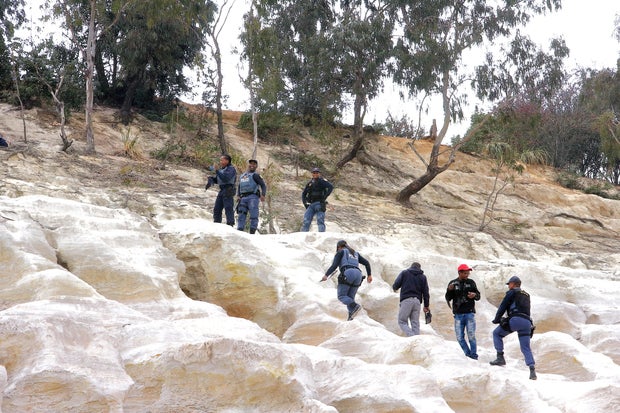
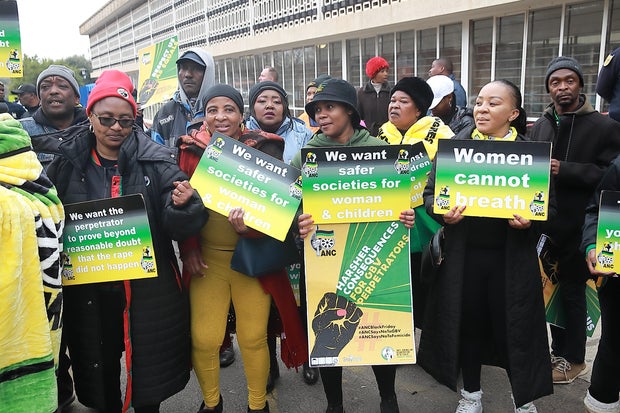
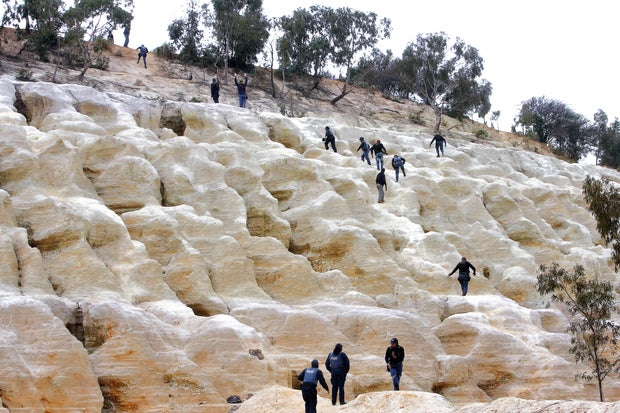
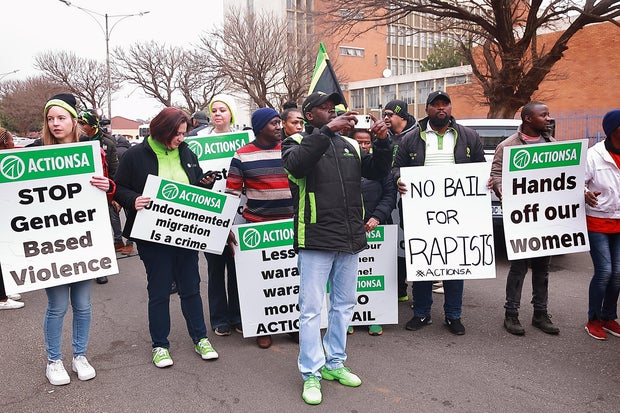



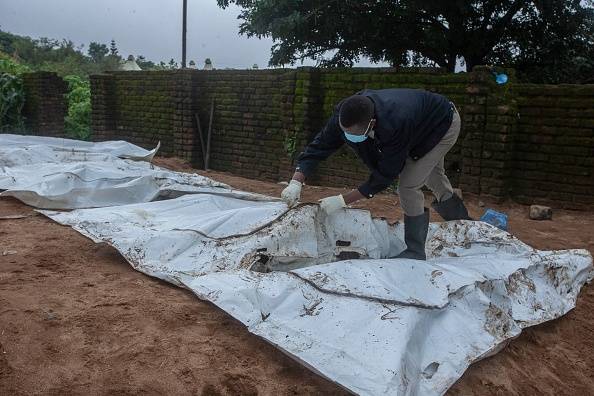



![Ep265: [Lean Series] 5 Ways You’re F*cking Up Your Fat Loss Ep265: [Lean Series] 5 Ways You’re F*cking Up Your Fat Loss](https://carrotsncake.com/wp-content/uploads/2025/01/IMG_3025-768x1024-1.jpg)
.png)

Discussion about this post